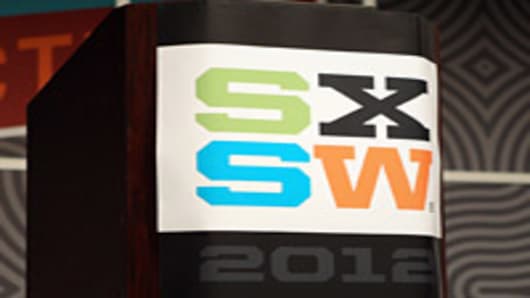"It takes a specific kind of individual to get something out of SXSW without resources already lined up," says Alex Elias, founder of Qloo, a soon-to-be launched website and app. Qloo threw a successful party at this year's SXSW in downtown Austin, though it was not an official event.
Qloo took advantage of the large number of influential people in Austin to begin "seeding the brand" by inviting key individuals to its party.
Qloo is the kind of startup able to effectively leverage SXSW. It has initial financing, a professional public relations team, and well-placed connections. One of Qloo's backers is actor Danny Masterson.
Most important, the company had a list of contacts lined up ahead of time. Elias was happy with Qloo's party but warns that every startup can't repeat that experience.
"Generally, South By Southwest is not a good return on investment for startups and entrepreneurs," Elias said. "If you're going there to launch your brand, you can't compete with all the noise. … The money you spend there might be better spent on another kind of event."
Many sole proprietors hoping to make connections come to South By Southwest. Is it worth it for them?
Elias warns that its usefulness "depends on the entrepreneur."
"If you're very gregarious, outgoing, resourceful, it can be a great opportunity because you're swimming in a pond with the kind of people you want to meet, and they're within reach," he said. "Without that skill set or resources, you might be disappointed.
David Benardo, a freelance advertising art director, spent about $2,500 to come to SXSW from his home in San Diego. He thought the investment was worthwhile and plans to come again next year.
"Most people come here to get more connections to partner up with later. I wanted to get exposed to the current state of marketing and social media — what's working and what's not, what new cool tools to play with."
Benardo also had the chance to meet some of the people whose blogs he'd been following or whom he had connected with on Twitter.
"I have a stack of business cards," he said. And he had an unexpected benefit: "I lost weight, went down one belt notch from all the walking around. Wear comfortable shoes."
If you're a startup, should you consider going next year? You'll have to make plans soon because the hotels fill up nine months in advance.
When to go to SXSW:
You're involved with technology and have the time, money, and patience to attend sessions and wait in long lines.
You have a consumer-oriented tech product or service aimed at early adapters, and you have the marketing budget to cut through the clutter.
You have connections to set up meetings ahead of time or get invited to the right parties.
You're outgoing and can strike up conversations with strangers.
You want to tell your friends you went to SXSW.
When not to go:
You've got a business-to-business product or service. Other events are cheaper and more effective.
You've got a limited budget. South By Southwest is expensive.
Your time is valuable. SXSW is disorganized. Attendees stood for more than two hours in line to get badges. Virtually every session had long lines and turned people away.
You expect a high level of professionalism at a trade show. One major sponsor complained to me about the lack of electricity for a booth. At a panel on TV, the video didn't work and the microphones were inadequate. Other glitches seemed common.
If, however, it's your dream to go to SXSW, go soon. Shows that depend on a coolness factor inevitably lose their luster.


